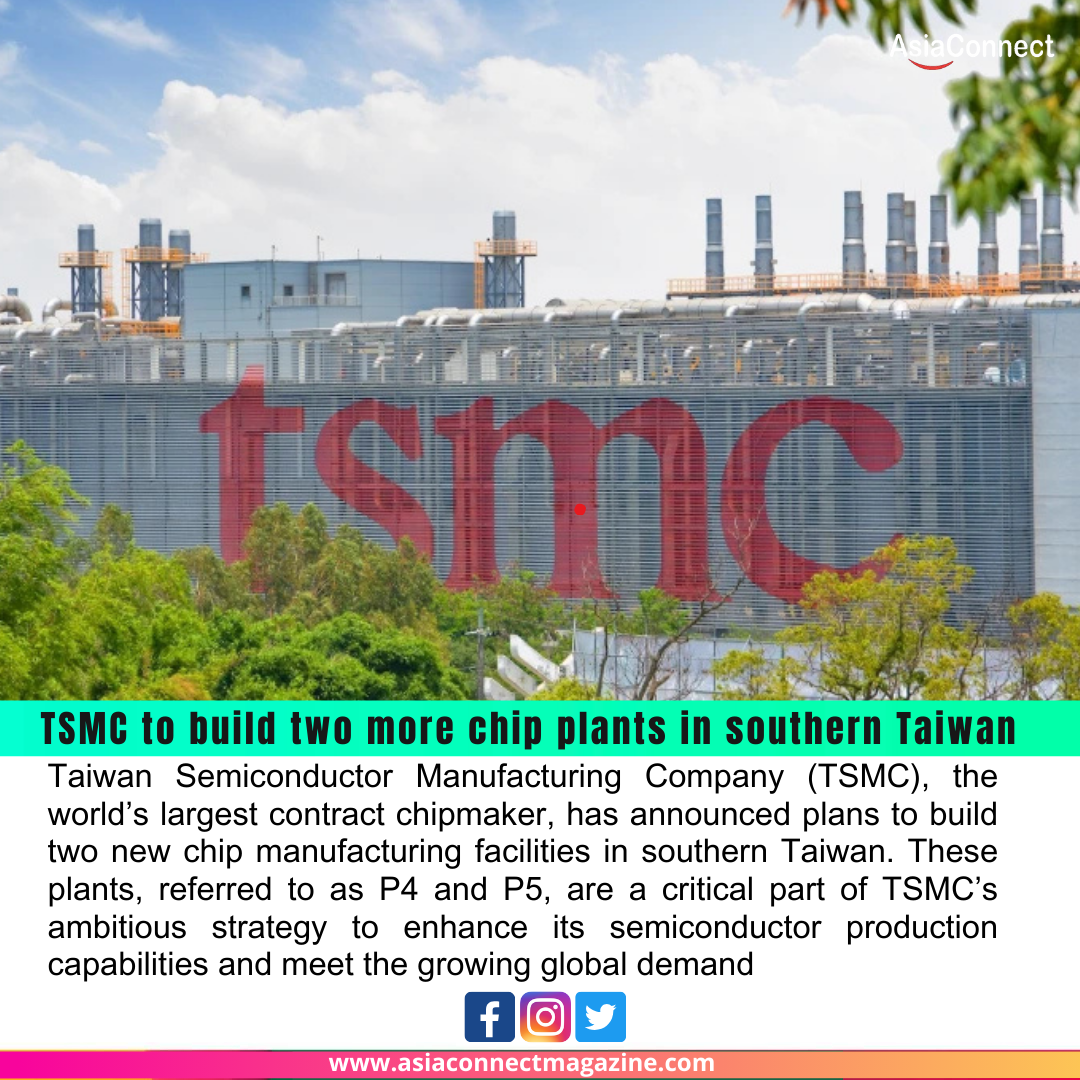Taiwan Semiconductor Manufacturing Company (TSMC), the world’s largest contract chipmaker, has announced plans to build two new chip manufacturing facilities in southern Taiwan. These plants, referred to as P4 and P5, are a critical part of TSMC’s ambitious strategy to enhance its semiconductor production capabilities and meet the growing global demand for advanced chips. The construction of these new fabs is also aligned with the company’s long-term goal to establish a total of five semiconductor plants in the region by 2027.
Strengthening Taiwan’s Semiconductor Leadership
TSMC’s decision to build the P4 and P5 plants comes as the semiconductor industry faces a dramatic surge in demand for cutting-edge chips, driven by technological advancements in areas such as artificial intelligence (AI), automotive electronics, 5G, and high-performance computing. As the global leader in semiconductor manufacturing, TSMC’s investment in expanding its production capacity is a significant move to maintain its dominant position in the highly competitive semiconductor sector.
The new P4 and P5 plants will be located in Tainan, a city in southern Taiwan that has already become a hub for semiconductor manufacturing. Tainan is home to several existing TSMC facilities, and the new plants will add to the region’s prominence as a center for high-tech industry and innovation. By increasing its presence in this area, TSMC aims to further solidify Taiwan’s status as a key player in the global semiconductor supply chain.
Expanding Production Capacity to Meet Global Demand
The semiconductor industry has faced considerable challenges in recent years, including supply chain disruptions, geopolitical tensions, and the escalating demand for more advanced chips. In response to these challenges, TSMC has been aggressively expanding its production facilities to meet the rising demand for semiconductors across multiple industries.
The P4 and P5 fabs are part of TSMC’s broader strategy to increase its production capacity by 2027, when the company aims to have five state-of-the-art manufacturing plants in southern Taiwan. This expansion will significantly bolster TSMC’s ability to produce cutting-edge 3-nanometer (3nm) and 2-nanometer (2nm) chips, which are crucial for powering next-generation technologies. These smaller chips are expected to offer better performance and efficiency, making them ideal for a range of applications, from mobile devices and consumer electronics to AI and cloud computing.
By ramping up its production capabilities, TSMC is positioning itself to better serve its clients, including major companies like Apple, Qualcomm, and Nvidia, who rely on TSMC to produce the advanced chips that power their devices and technologies.
A Commitment to Innovation and Sustainability
In addition to expanding its manufacturing footprint, TSMC is also focusing on improving the sustainability of its operations. The new P4 and P5 fabs will incorporate the latest in energy-efficient technologies and processes, ensuring that TSMC continues to operate in an environmentally responsible manner. This aligns with TSMC’s ongoing efforts to reduce its carbon footprint and contribute to Taiwan’s overall sustainability goals.
TSMC has also been investing heavily in research and development (R&D) to stay at the forefront of semiconductor technology. The company’s commitment to R&D is expected to play a crucial role in the continued advancement of chip manufacturing processes, ensuring that TSMC remains a leader in the industry.
Looking Ahead: TSMC’s Role in Global Tech
As TSMC moves forward with its plans to build the P4 and P5 plants, the company is not just expanding its operations but also shaping the future of the global semiconductor industry. With the increasing reliance on advanced chips for a wide array of applications, TSMC’s role in the global technology ecosystem will only continue to grow.
The construction of these new fabs in southern Taiwan underscores TSMC’s commitment to innovation, capacity expansion, and sustainability. As the company continues to meet the global demand for cutting-edge semiconductors, it will remain at the heart of the technology revolution that is transforming industries worldwide.





